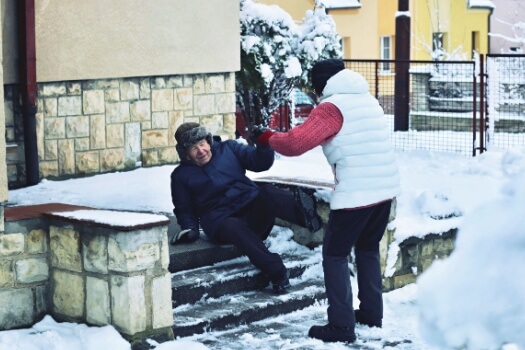
Buying a home in Georgia isn’t just about picking the right neighborhood or getting the best mortgage rate—it’s about protecting your investment. Your homeowners insurance is designed to do just that. While most folks think first about coverage for fire, theft, or storm damage, there’s another piece of the puzzle that can save you from major headaches: family liability protection.
This coverage often doesn’t get the spotlight it deserves, but it can make a world of difference when accidents happen—whether that’s a slip on your porch steps, your child breaking a neighbor’s window, or even your dog nipping a jogger at the park. Let’s break down what it is, why it matters, and how you can make sure your coverage truly protects your family.
What Is Family Liability Protection?
Family liability protection—sometimes called homeowners personal liability coverage—is your financial safety net if you or someone in your household causes damage or injury to someone else. It’s not about replacing your roof after a storm (that’s property coverage). Instead, it’s about keeping you from paying out of pocket if you’re held responsible for someone else’s loss.
Definition of Family Liability Coverage
Family liability coverage, sometimes called personal liability coverage, is a key part of your homeowners or renters insurance policy. In simple terms, it helps protect your finances if you or a family member accidentally cause injury or damage to someone else’s property.
Think of it this way: accidents happen, and when they do, you don’t want them draining your bank account. Family liability coverage steps in to handle situations like:
- A guest slipping on your icy front steps in Macon.
- Your kid’s backyard baseball game ending with a shattered neighbor’s window in Savannah.
- Your dog escaping the fence and knocking over a cyclist in Atlanta.
In these cases, your policy can cover medical bills, property repair costs, and even legal defense fees if the injured party decides to sue. Without this protection, you’d be left paying out of pocket—and those expenses can add up fast.
How Liability Protection Works in a Homeowners Policy
Your homeowners policy has a coverage limit, which is the maximum amount your insurer will pay for a covered claim. Many Georgia homeowners carry at least $100,000 in liability protection, but higher limits—$300,000 or $500,000—are common for stronger peace of mind.
Here’s the key: if the claim costs more than your limit, you’re responsible for the difference. That’s where umbrella insurance can help fill the gap.
The Relationship Between Family Liability Protection and Umbrella Insurance Policy
Part of being a responsible homeowner is knowing what your insurance should include—not just for your house itself, but for the risks that come with everyday life. Family liability protection offers a strong foundation, but it isn’t always enough on its own. Serious accidents—like a major injury on your property or a costly lawsuit—can quickly exceed the limits of your homeowners policy.
That’s where umbrella insurance comes in. By pairing these two coverages, you create an extra layer of financial security that helps protect your family and assets when life’s unexpected events go beyond standard limits.
Understanding Umbrella Insurance
Umbrella insurance is extra protection that sits on top of your homeowners and auto policies. It kicks in when your regular liability coverage runs out.
Let’s say your liability limit is $300,000, but you’re sued for $500,000. Your homeowners insurance pays the first $300,000, and your umbrella policy could cover the remaining $200,000. Without it, you’d have to come up with that cash yourself—likely by dipping into savings or assets.
Benefits of Bundling Umbrella Policies
A lot of Georgia families choose to bundle their umbrella coverage with home and auto insurance, and for good reason. Bundling often lowers your overall premiums, simplifies your insurance by cutting down on multiple bills and contacts, and strengthens your protection against everyday risks. Many insurers also offer special discounts for Georgia residents who bundle policies, making it an even smarter way to save while staying protected.
Whether you’re a homeowner in the suburbs, have a vacation cabin tucked away in the mountains, or simply want to safeguard your savings, bundling an umbrella policy can provide that extra layer of financial security.

Risk Management Strategies for Homeowners
Even with insurance in place, it pays to take steps to prevent accidents. That’s called risk management, and it can help you avoid filing claims in the first place. Think of it as protecting your home on two levels: your insurance policy is there for financial backup, while smart habits reduce the chances you’ll need to use it at all.
From keeping walkways safe to staying on top of home maintenance, small proactive measures can go a long way toward keeping both your property and your guests safe.
Assessing Potential Risks at Home
Every Georgia home has its own set of risks, and being aware of them is the first step toward prevention. Some hazards are seasonal, like slippery steps in the winter, while others can happen anytime, such as a dog bite or an unexpected fall during a backyard gathering.
By taking a closer look at the most common risks homeowners face, you can better understand where to focus your safety efforts and where your insurance coverage may come into play. Here are some examples:
- Dog bites: Some breeds aren’t covered under liability protection. Always double-check with your insurer.
- Slip-and-fall accidents: A wet front porch after a summer thunderstorm in Albany or icy steps during a rare Atlanta freeze can both spell trouble.
- Property damage: Tree limbs falling on a neighbor’s roof are more common than you might think, especially in rural areas.
- Hosting guests: Whether it’s a cookout in Augusta or a holiday party in Columbus, more people on your property means more chances for accidents.
Implementing Risk Management Strategies
Good risk management doesn’t have to be complicated. Simple habits can make a big difference in preventing accidents around your home. Trimming trees and inspecting weak branches regularly can help you avoid property damage, while salting or sanding icy walkways in the winter keeps visitors safe.
Keeping stairs, driveways, and porches free of clutter reduces the chance of trips and falls, and supervising kids and pets—especially near neighbors’ property—helps prevent unexpected accidents. These small steps not only lower the risk of someone getting hurt but also protect you from unnecessary claims on your record.
Comprehensive Home Insurance vs. Standard Policies
Not all homeowners policies are built the same. Some are basic, while others are more comprehensive—and knowing the difference matters. A standard policy may be enough to cover the essentials, but if you have a growing family, valuable property, or simply want stronger protection, a more comprehensive option could be the smarter choice.
Understanding where these policies differ helps you make sure your coverage truly matches your lifestyle and the risks you face as a Georgia homeowner.
Key Differences:
A standard homeowners policy generally includes:
- Property coverage for your house and belongings
- Family liability protection
- Medical payments coverage for small guest injuries
A comprehensive policy, on the other hand, may offer:
- Higher liability limits
- Coverage for more types of risks
- Flexible add-ons, like coverage for high-value items or extended living expenses
Importance of Comprehensive Coverage
If you’ve got a growing family, valuable property, or simply want more peace of mind, comprehensive coverage is worth considering. Pairing it with an umbrella insurance policy ensures that if the unexpected happens, you won’t be left scrambling to cover costs.
For Georgia homeowners, where community events, backyard gatherings, and unpredictable weather are part of everyday life, that extra protection can make all the difference.